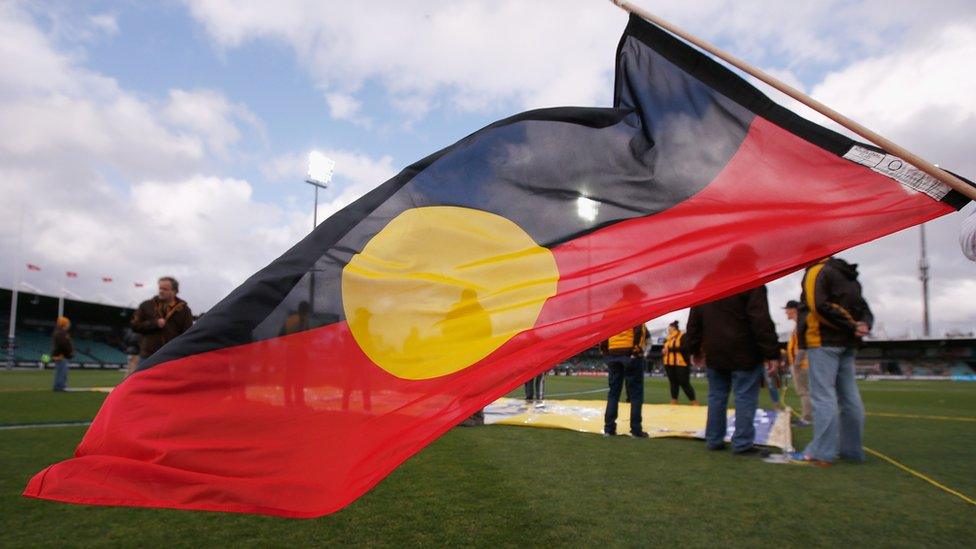Life for Indigenous Australians 'stagnating, worsening'
- Published

The Productivity Commission report is Australia's most comprehensive study of Indigenous wellbeing
Indigenous Australians are experiencing increasing levels of imprisonment, self-harm and substance abuse, according to a damning new report.
The Productivity Commission paper, external said many aspects of life for Aboriginal and Torres Strait Islander Australians had "stagnated or worsened" since 2014.
But other key measures, such as education and health, had improved.
The report, released on Thursday, is Australia's most comprehensive study of Indigenous wellbeing.
It detailed a 77% rise in the incarceration of Indigenous people over the last 15 years. Although the juvenile detention rate decreased, it remained 24 times higher than for non-Indigenous Australians.
Worsening levels of psychological distress (up 6% since 2004-5) and substance abuse (up 8% since 2014-15), as well as no decrease in family and community violence, were other major concerns.
However, child mortality rates - particularly for babies under one - were down, and 11% more adults were getting their main income from employment compared to 2014-15.
Productivity Commission deputy chair Karen Chester said the findings should be carefully considered by federal, state and territory governments.
"I think the clock has been ticking for a while already," she told the ABC on Thursday.
"At the end of the day, we can't feign surprise that we're not seeing improvement across all of these wellbeing indicators if we're not lifting the bonnet and evaluating if the policies and programs are working or not."